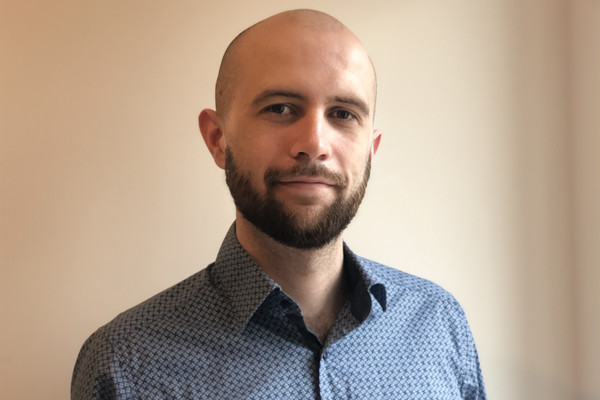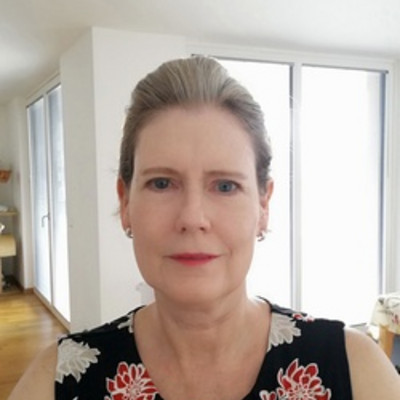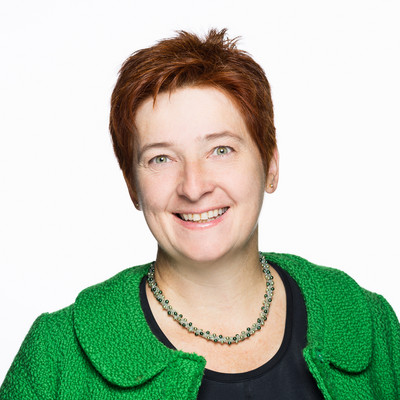The program offers four concentration areas of which you can choose two: Globalisation an Multi-Level Policy, Globalisation and Social Policy, Social Ecological Economics and The Political Economy of Inequalities.
The master's program combines economics and interdisciplinary thinking to shape new solutions.It provides insights into heterodox economics, social policy, ecological economics, degrowth, governance, economic geography, political ecology and political science.
With around 60 students per year who have come from all kinds of different backgrounds and with more than 15 different nationalities, the cohort has a real variety of students. Students benefit from closer interaction with professors and fellow students.
Students gain a holistic understanding of socio-economic challenges, combining academic depth with real-world relevance.
The program goes beyond single-discipline perspectives, offering an integrated approach grounded in solid theoretical knowledge and strong practical orientation.
More than 193,000 people study in Vienna. This lively and international student community makes the city a center for innovation, creativity and modern exchange.
Sofie had a hard time deciding on a master’s program – there are so many to choose from! With SIMC, she managed to find a program that covers her broad interests and gives her the flexibility to discover new areas as well.
Matt is originally from Australia. He decided to come to Vienna to study SIMC because he was convinced that this was the right place for him and his family. He discovers something new every day, including cultural highlights, natural beauty, and the best quiet corners to study in.
The master’s program
The SEEP MSc foundation courses in the first semester provide coverage of research and writing on contemporary policy challenges; the history and philosophy of science; international and European law, institutions and governance; economic growth and development. In the second semester two specialisations are chosen from four options and undertaken along with the methods course and an agent level behavioural socio-economics course. Quantitative and qualitative methods are treated as equally important in the programme and taught in combination, not as separate courses or with the former regarded as superior to the latter. In the second year the concentration areas and methods course continue during the third semester. In addition, across the third and fourth semesters a minor course is run allowing team work and practical community engagement, called service learning. In the fourth semester students turn to their thesis.
SEEP is aimed particularly at students who:
1) Wish to obtain interdisciplinary theoretical and academic skills, qualifying them for specialist positions in diverse areas of policy and management in government and non-governmental organisations, international agencies, research institutes and academia;
2) Wish to obtain the necessary prerequisites for higher scientific qualifications (PhD/doctoral programs)
3) Wish to proceed to teaching and/or research at universities or other institutions
- Admission
The master's program is aimed at graduates with a relevant prio degree worth at least 180 ECTS, including 16 ECTS in economics and/or social sciences, as well as excellent Englisch language skills.
Please read our guide for applicants and make sure that you meet the admission requirements. Don’t forget to look at our admission timeline and note the deadlines.
Further information on tuition fees can be found here.
- Program structure and content
1. semester 2. semester 3. semester 4. semester 1. half term 2. half term 1. half term 2. half term 1. half term 2. half term 1. half term 2. half term History & Philosophie of Sciences Is offered Is offered Is not offered Is not offered Is not offered Is not offered Is not offered Is not offered International & European Law, Institutions and Governance Is offered Is offered Is not offered Is not offered Is not offered Is not offered Is not offered Is not offered Growth, Well-Being & Development Is offered Is offered Is not offered Is not offered Is not offered Is not offered Is not offered Is not offered Introduction to Research & Writing on Contemporary Policy Challenges I Is offered Is offered Is not offered Is not offered Is not offered Is not offered Is not offered Is not offered Quantitative & Qualitative Methods I Is not offered Is not offered Is offered Is offered Is not offered Is not offered Is not offered Is not offered Concentration Area I* Is not offered Is not offered Is offered Is offered Is not offered Is not offered Is not offered Is not offered Concentration Area II* Is not offered Is not offered Is offered Is offered Is not offered Is not offered Is not offered Is not offered Actors, Behaviours & Decision Processes Is not offered Is not offered Is offered Is offered Is not offered Is not offered Is not offered Is not offered Introduction to Research & Writing on Contemporary Policy Challenges II Is not offered Is not offered Is offered Is offered Is not offered Is not offered Is not offered Is not offered Quantitative & Qualitative Methods II Is not offered Is not offered Is not offered Is not offered Is offered Is offered Is not offered Is not offered Concentration Area I Part II* Is not offered Is not offered Is not offered Is not offered Is offered Is offered Is not offered Is not offered Concentration Area II Part II* Is not offered Is not offered Is not offered Is not offered Is offered Is offered Is not offered Is not offered Service Learning I Is not offered Is not offered Is not offered Is not offered Is offered Is offered Is not offered Is not offered Service Learning II Is not offered Is not offered Is not offered Is not offered Is not offered Is not offered Is offered Is offered Thesis Colloquium Is not offered Is not offered Is not offered Is not offered Is not offered Is not offered Is offered Is offered Masters Thesis Is not offered Is not offered Is not offered Is not offered Is not offered Is not offered Is offered Is offered 1. semester 2. semester 3. semester 4. semester 1. half term 2. half term 1. half term 2. half term 1. half term 2. half term 1. half term 2. half term History & Philosophie of Sciences Is offered Is offered Is not offered Is not offered Is not offered Is not offered Is not offered Is not offered International & European Law, Institutions and Governance Is offered Is offered Is not offered Is not offered Is not offered Is not offered Is not offered Is not offered Growth, Well-Being & Development Is offered Is offered Is not offered Is not offered Is not offered Is not offered Is not offered Is not offered Introduction to Research & Writing on Contemporary Policy Challenges I Is offered Is offered Is not offered Is not offered Is not offered Is not offered Is not offered Is not offered Quantitative & Qualitative Methods I Is not offered Is not offered Is offered Is offered Is not offered Is not offered Is not offered Is not offered Concentration Area I* Is not offered Is not offered Is offered Is offered Is not offered Is not offered Is not offered Is not offered Concentration Area II* Is not offered Is not offered Is offered Is offered Is not offered Is not offered Is not offered Is not offered Actors, Behaviours & Decision Processes Is not offered Is not offered Is offered Is offered Is not offered Is not offered Is not offered Is not offered Introduction to Research & Writing on Contemporary Policy Challenges II Is not offered Is not offered Is offered Is offered Is not offered Is not offered Is not offered Is not offered Quantitative & Qualitative Methods II Is not offered Is not offered Is not offered Is not offered Is offered Is offered Is not offered Is not offered Concentration Area I Part II* Is not offered Is not offered Is not offered Is not offered Is offered Is offered Is not offered Is not offered Concentration Area II Part II* Is not offered Is not offered Is not offered Is not offered Is offered Is offered Is not offered Is not offered Service Learning I Is not offered Is not offered Is not offered Is not offered Is offered Is offered Is not offered Is not offered Service Learning II Is not offered Is not offered Is not offered Is not offered Is not offered Is not offered Is offered Is offered Thesis Colloquium Is not offered Is not offered Is not offered Is not offered Is not offered Is not offered Is offered Is offered Masters Thesis Is not offered Is not offered Is not offered Is not offered Is not offered Is not offered Is offered Is offered * You can choose two out of four:
1) Social Ecological Economics
2) Globalisation & Social Policy
3) Globalisation & Multi-Level Policy
4) The Political Economy of Inequalities
- Master of Science, MSc (WU)
The master's program offers excellent career prospects in the following areas:
- Positions in international organizations and NGOs
- Research in the fields of environment, social policy, and sustainable development
- Consulting in the field of sustainability strategies and transformation processes
- Work in public institutions at the national and international level
- Analysis and development of socio-ecological policies in think tanks and research institutes
Make your way

Policy Fellow at LSE
My interest in heterodox economics, aimed at understanding and tackling the biggest challenges of our time, led meto the SEEP master’s program at WU Vienna.

Advisor in the labor market and Integration Department, Chamber of LabourVienna
I wanted to gain a deeper understanding of economics and learn how global dynamics affect policymaking at the local level.
Living the student life

Program Manager
Ask us
Hi, I’m Dorothy. I’m here to help you on your way to the SEEP master’s program. If you have any specific questions, please feel free to reach out using the online contact form or by email to seep@wu.ac.at
* Required fields are marked with an asterisk (*).

